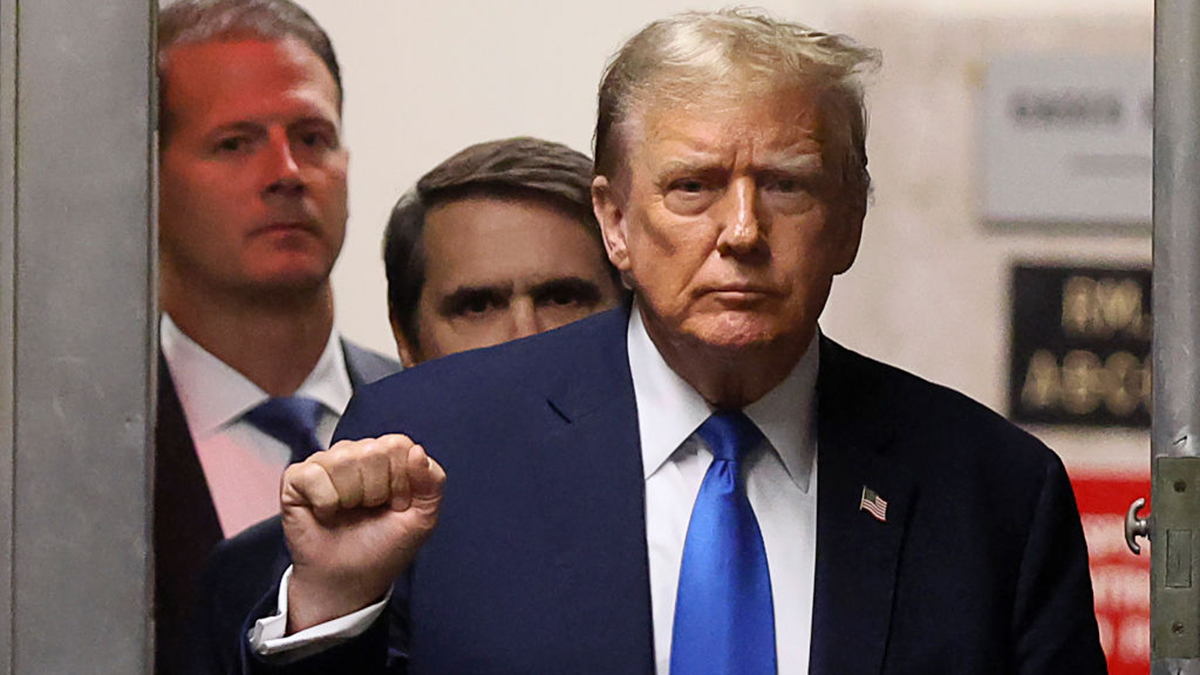Despite the sheer size and society-spanning impact of the $1.5 trillion tax overhaul, the quickest and most potent political victory that Republicans would savor by pushing the bill through Congress next week may be what it averts: another big GOP legislative crash in the age of Trump.
Even if Republicans are correct that tax cuts for business and the wealthy bolster the economy, it can take time for obvious results to show. And even with millions of families likely to enjoy lower taxes, many won't feel much until they file their 2018 tax returns in early 2019. That's well after the November 2018 elections that may be a coin flip for control of Congress, and recent races suggest those contests may be heavily influenced by President Donald Trump's unpopularity.
Approval of the tax bill seems certain, with House passage assured and two of the few potential Senate GOP opponents lining up Friday behind the measure: Marco Rubio of Florida and Tennessee's Bob Corker. That means a White House signing ceremony, probably by Christmas.
Republicans hope that would overshadow their embarrassing failure to repeal President Barack Obama's health law. Another flop would have infuriated GOP backers and donors already enraged by the Affordable Care Act debacle, fueling hard-right primary challenges against Republican incumbents or encouraging conservatives to stay home in November.
If the tax bill isn't approved, "the country's reaction is going to be, 'Why did we put you in in the first place?'" said David Winston, a GOP pollster who advises congressional leaders.
"Passing the tax bill is necessary but not sufficient for Republicans to retain control of Congress in 2018," said GOP consultant Whit Ayres. "It does give the party a concrete accomplishment that they can take to the voters, and that's critical."
Democrats view the tax legislation as a rich political opportunity.
U.S. & World
Surveys this month have shown clear majorities oppose the legislation. Quinnipiac University and Marist polls also find that at least 6 in 10 people surveyed say the bill would primarily help the rich. Analyses by Congress' nonpartisan Joint Committee on Taxation have shown most benefits going to corporations and the wealthy, with more modest help for middle- and low-income families, an attack angle Democrats are already using.
"It's daylight robbery," House Democratic leader Nancy Pelosi of California said last week. "And with every iteration, the GOP tax scam becomes even more cowardly, outrageous, dishonest, brazen. Theft from middle-class families, giving money from them to the richest people in our country and to corporations."
Democrats see another opening in the measure's $10,000 limit on deductions for state and local property, income and sales taxes. That could raise taxes for suburban voters in high-tax states such as California, New York and New Jersey. Democrats who did surprisingly well among suburban voters in their recent victories in the Alabama Senate and Virginia governor's races and in local contests around the country see the bill as another path to corralling that critical bloc next November.
Democrats need to gain 24 seats to capture majority control of the House. The Senate is a tougher task even after Democrat Doug Jones' upset in Alabama cut the GOP edge to 51-49.
Senate Democratic leader Chuck Schumer of New York called the bill's trimming of deductions "a gut punch to millions of middle class and upper-middle-class Americans who live in the suburbs, the same people who are turning away from President Trump."
Other provisions give Democrats tempting populist targets.
The individual tax cuts expire in 2026 while corporate reductions are permanent. Especially over time, many families would see their taxes rise, not fall.
The bill's repeal of the Obama health law's tax penalty on people not buying coverage is expected to drive up insurance premiums by about 10 percent, according to the nonpartisan Congressional Budget Office, though Republicans might pass additional legislation to ease that.
Republicans note that beginning early next year, people could increase their take home pay by reducing the money withheld in their paychecks to reflect tax changes. They say the bill's poor polling would be trumped by its effect on people.
"I'm convinced this is going to launch more investment in businesses and workers. I'm convinced this is going to give bigger paychecks, a simpler system," said House Speaker Paul Ryan, R-Wis.
"This legislation will bring real relief to the middle class by taking money out of Washington's pocket and putting it into theirs," said Senate Majority Leader Mitch McConnell, R-Ky. He added: "Only those who don't know the struggles of hardworking American families could conclude otherwise."
Trump told reporters Saturday that Democrats "have their sound bite, the standard sound bite, before they even know what the bill is all about."
Some Republicans worry they may experience the same fate as Democrats after they approved the health law in 2010. That November, Democratic incumbents were defeated in droves, costing them House control.
"Legislative success does not necessarily translate into political success. Just ask the Democrats," said Rep. Charlie Dent, R-Pa., a moderate who's retiring next year. "We're going to be running with the wind in our face regardless of what's accomplished."
Part of that headwind could come from Trump, which worries many Republicans.
"If we get some things done it'll maybe improve our chances, but the president's not making it any easier," said Rep. Mike Simpson, R-Idaho. "He's making it very, very difficult. All the news about his latest tweet and what he says and then he gets mad at us because we don't defend it. So we'll see."



